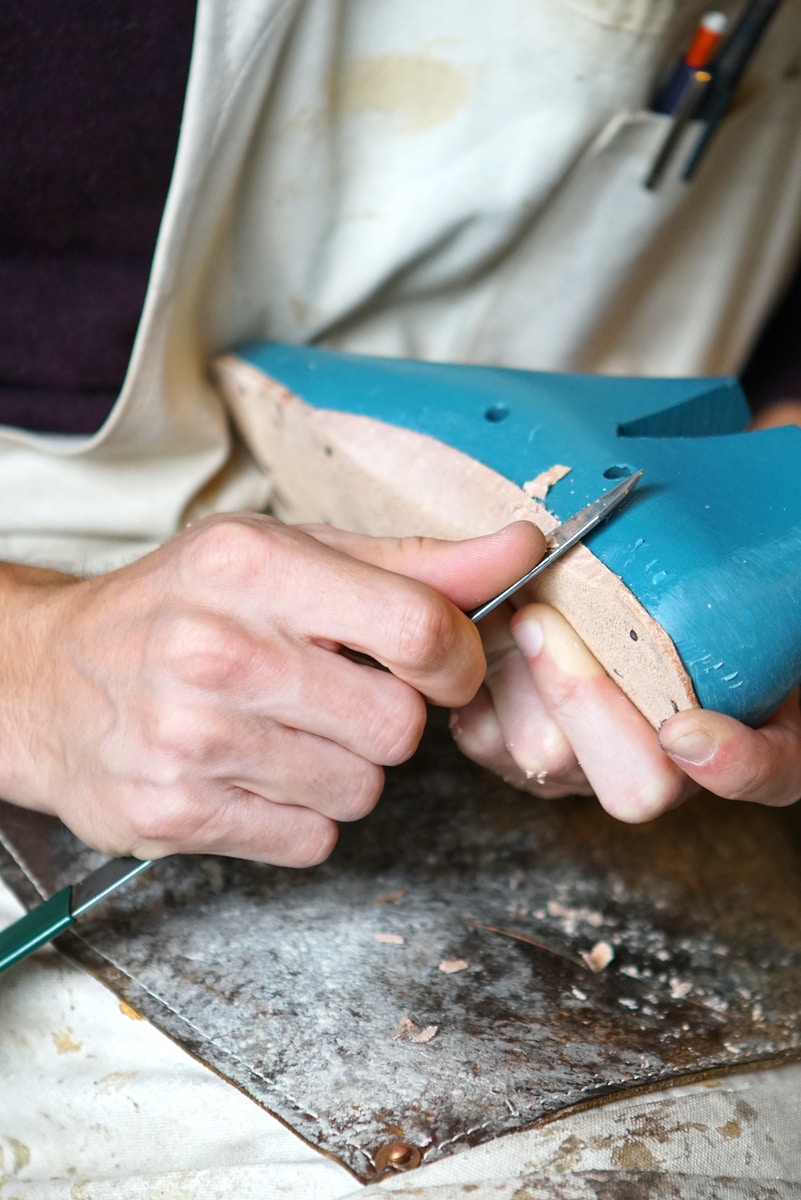
The “guardians” of French craftsmanship excellence, bootmaking, remains one of the most important professions. This profession is characterized by increasing feminization, varied training paths, and was honored at the 13th Rencontres du Cuir (Conseil National du Cuir) in November.
According to the Observatory of Fashion Textile and Leather Professions, 70% of leather craftsmen are women and 30% are men. However, the distribution of leather craftsmen varies depending on their trade. While women make up 80 percent of leather goods workers, men dominate the upstream trades such as raw hides, skins, tanning and tannery. This sector has two thirds men and one third women.
Bootmaking is an exceptional case, as feminization started later than in other industries. It only appeared in 2004, the year that the apprenticeship program was made available to women. This was a positive decision for the profession, which now has a complete parity and is subject to many female reconversions. Audrey Benguerine, an ex-information systems project manager, shared her story at the event. She had attended three years worth of evening classes and decided to take her bootmaker’s CAP independently. Then she joined Maison Corthay to become a stitcher.
Laura Puntillo was another “spectacular” convert, an associate of Philippe Atienza, master bootmaker. Her revelation was made during an exhibition dedicated to Maurice Arnoult. She is an anthropologist by training and a designer by trade. To learn how to make boots, she joined the Maurice Arnoult Association. Laura Puntillo is now a trainer for the association, and she is committed to creating shoes for women.
There are many training courses available
The Compagnons du Devoir make up 80 percent of all students who are trained at the CAP level as bootmakers. It is the main training organization for the profession of bootmaker, ranging from the CAP to Bac Pro via the Tour de France. However, there are other courses that offer “shoe specialties” in training centers. Specialization can then be done in the workshop, through internships, or during alternating courses. Since around ten years, the National Society of the Best Workers in France has organized a competition for apprentices: the MAF (Best Apprentice in France). The competition does not award a diploma. Instead, the title “One the Best Craftsmen of France” is recognized by national education. For those aged over 25, the AFPA, Pole Emploi, and the Centre Technique du Cuir offer continuing education programs.
“We are at many training fairs. We often meet former employees and executives, mostly women, who are looking to retrain in their trades in search for meaning and manual creation.” Frank Boehly was the President of Conseil National du Cuir during this event.
The National Chamber of Bootmakers produced the film “French Bootmaking from know-how and innovation” in order to increase the employer brand’s appeal. The CSNB, together with many partners, is committed to the “Shoes for Life” operation. Official launch of the raffle to support research and fight against cancer is February 4, 2022. Each winner will be awarded a pair custom-made shoes. Leather craft is experiencing real popularity. These sectors are fueled by luxury brands and French know-how. They offer a fertile ground for employment with high levels of expertise.



